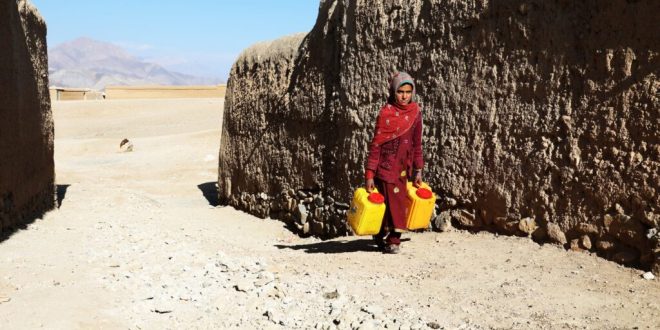AT
Kabul: The United Nations Development Programme (UNDP) has highlighted Afghanistan’s severe water crisis, noting that nearly 80 percent of the population lacks sufficient access to drinking water.
On World Water Day, the UNDP emphasized that almost 79 percent of Afghans face inadequate access to water resources. The organization attributed this crisis to severe drought conditions, economic instability, and the destructive impact of long-term conflicts on Afghanistan’s water infrastructure.
Particularly concerning is the disproportionate impact on female-headed households, which encounter greater challenges in accessing public water facilities, thus heightening their vulnerability.
Climate change exacerbates these challenges, with 67 percent of Afghan families affected by drought-related issues and an additional 16 percent grappling with floods.
The UNDP underscored how climate change intensifies droughts and floods, posing a threat to Afghanistan’s agricultural communities. To address these issues, the UN development program has undertaken initiatives such as constructing or rehabilitating over 824 kilometers of irrigation canals, thereby facilitating the irrigation of more than 17,000 hectares of agricultural land.
 Afghanistan Times
Afghanistan Times




